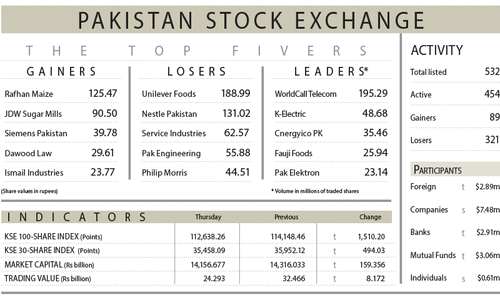 RIYADH, Sept 16: In order to help recover the $1 trillion mortgage losses of Fannie Mae and Freddie Mac, the state-backed American mortgage finance titans, the US government was seeking funds from the Middle Eastern and Asian investors, Ilyas Al-Qaseer of Calyon Credit Agricole Bank told the local press.
RIYADH, Sept 16: In order to help recover the $1 trillion mortgage losses of Fannie Mae and Freddie Mac, the state-backed American mortgage finance titans, the US government was seeking funds from the Middle Eastern and Asian investors, Ilyas Al-Qaseer of Calyon Credit Agricole Bank told the local press.
Speaking to Al-Eqtisadiah, the business daily, Al-Qaseer, who is the French bank’s executive director for treasury affairs, wondered how much profit the American government would provide to investors if they channel their money to save the country from its mortgage crisis.
He expected many financial, banking and investment organisations to purchase subprime mortgage assets in the US. However, he pointed out that banks in the region — that are involved in the crisis — could not sell all their mortgage assets, adding that they could not find buyers for about 20 per cent of such assets.
He voiced doubts whether the Gulf banks affected by the credit crunch would be able to recover their money except in a limited way. Fannie Mae and Freddie Mac own or guarantee about $5.2 trillion in home loans, equivalent to about 40 per cent of the overall value of American mortgages.
The cost of saving the two companies is estimated at $200 billion and it would be made through pumping more funds to the two. A number of financial organisations and wealthy individuals from the Gulf region have invested in sovereign funds of leading banks and financial organisations such as Citigroup and Merrill Lynch after the latter suffered heavy losses as a result of the writing-off of billions of dollars following the mortgage crisis.
Some Gulf banks also have suffered losses due to the mortgage crisis in the US. Al-Qaseer expected that more Western banks would announce their losses caused by the mortgage crisis within six months. He also predicted that the crisis would lead to an international economic slowdown and a liquidity crunch.
The Calyon bank official feared that the Gulf banks would not be able to recover their losses caused by the mortgage crisis. Abu Dhabi Commercial Bank announced last week that it had started legal proceedings in New York to recover losses of its investment funds in the US.
Al-Qaseer predicted that the Gulf banks — that were not hit by the US crisis — would not be able to make big profits like before due to a lack of liquidity and fall in investments. Many financial organisations have also stopped issuing new bonds and Islamic sukuks, he added.
Central banks in Gulf countries have also regulated issuance of loans to avoid any future credit crisis like the one suffered by the US.
Al-Qaseer cautioned Gulf financial organisations for keeping 80 per cent of their total investment in the real estate sector. He warned investors would lose heavily if there was any fall in real estate prices. “Such a crisis will have greater negative impact on Islamic banks,” he added.















































Dear visitor, the comments section is undergoing an overhaul and will return soon.